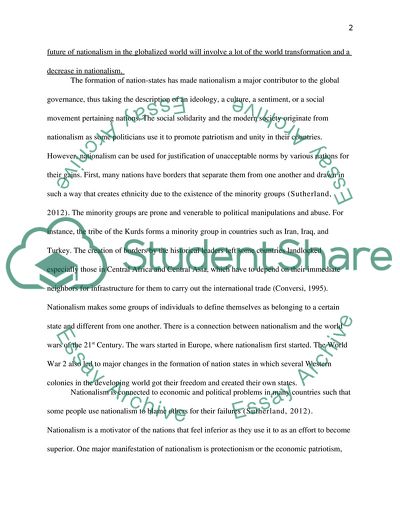Cite this document
(The Future of Nationalism in the Globalizing World Essay Example | Topics and Well Written Essays - 1750 words, n.d.)
The Future of Nationalism in the Globalizing World Essay Example | Topics and Well Written Essays - 1750 words. https://studentshare.org/social-science/1871017-does-nationalism-have-a-future-in-a-globalizing-world
The Future of Nationalism in the Globalizing World Essay Example | Topics and Well Written Essays - 1750 words. https://studentshare.org/social-science/1871017-does-nationalism-have-a-future-in-a-globalizing-world
(The Future of Nationalism in the Globalizing World Essay Example | Topics and Well Written Essays - 1750 Words)
The Future of Nationalism in the Globalizing World Essay Example | Topics and Well Written Essays - 1750 Words. https://studentshare.org/social-science/1871017-does-nationalism-have-a-future-in-a-globalizing-world.
The Future of Nationalism in the Globalizing World Essay Example | Topics and Well Written Essays - 1750 Words. https://studentshare.org/social-science/1871017-does-nationalism-have-a-future-in-a-globalizing-world.
“The Future of Nationalism in the Globalizing World Essay Example | Topics and Well Written Essays - 1750 Words”. https://studentshare.org/social-science/1871017-does-nationalism-have-a-future-in-a-globalizing-world.


